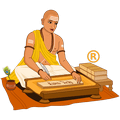























Sunrise06:35
Sunset17:59
Moonrise08:40
Moonset00:35, Mar 07
Shaka Samvat1745 Subhanu
Vikram Samvat1880 Jaya
Gujarati Samvat1880 Manmatha
Amanta MonthPhalguna
Purnimanta MonthPhalguna
WeekdayShaniwara
PakshaShukla Paksha
TithiShashthi upto 23:24
NakshatraKrittika upto 04:31, Mar 07
YogaVaidhriti upto 19:29
KaranaKaulava upto 11:36
KaranaTaitila upto 23:23
Pravishte/Gate26
Rahu Kalam09:26 to 10:51
Gulikai Kalam06:35 to 08:00
Yamaganda13:43 to 15:08
Abhijit11:54 to 12:40
Dur Muhurtam06:35 to 07:20
Dur Muhurtam07:20 to 08:06
Amrit Kalam02:06, Mar 07 to 03:43, Mar 07
Varjyam16:24 to 18:01
Notes: All timings are represented in 24-hour notation in local time of Saint John, Canada with DST adjustment (if applicable).
Hours which are past midnight are suffixed with next day date. In Panchang day starts and ends with sunrise.


 Meena 26:25+
Meena 26:25+ Revati 26:25+
Revati 26:25+

 Mesha
Mesha Ashwini 27:34+
Ashwini 27:34+

 Mesha
Mesha Bharani 28:16+
Bharani 28:16+

 Mesha 10:23
Mesha 10:23 Krittika 28:31+
Krittika 28:31+

 Vrishabha
Vrishabha Rohini 28:17+
Rohini 28:17+

 Vrishabha 15:58
Vrishabha 15:58 Mrigashira 27:32+
Mrigashira 27:32+

 Mithuna
Mithuna Ardra 26:17+
Ardra 26:17+

 Mithuna 19:02
Mithuna 19:02 Punarvasu 24:34+
Punarvasu 24:34+

 Simha
Simha Magha 17:27
Magha 17:27

 Simha 20:15
Simha 20:15 P Phalguni 14:52
P Phalguni 14:52

 Tula 25:59+
Tula 25:59+ Swati 08:05
Swati 08:05

 Vrishchika
Vrishchika Anuradha 08:52
Anuradha 08:52

 Dhanu 22:27
Dhanu 22:27 P Ashadha 15:41
P Ashadha 15:41

 Makara
Makara U Ashadha 18:48
U Ashadha 18:48

 Kumbha 23:10
Kumbha 23:10 P Bhadrapada 29:40+
P Bhadrapada 29:40+

 Meena 08:36
Meena 08:36 Revati 08:36
Revati 08:36In Hindu Calendar, the day starts with local sunrise and ends with next day local sunrise. As sunrise time is different for all cities, Hindu Calendar made for one city is not valid for any other city. Hence it is important to use location based Hindu Calendar, like this website. Further, each Hindu day consists of five elements, which are called angas. These five elements are -
In Hindu Calendar, all five elements together are called Panchang. (In Sanskrit: Panchang = Pancha (five) + Ang (part)). Hence Hindu Calendar which shows all five elements for each day is called Panchang. In South India Panchang is known as Panchangam.
When Hindu Calendar includes Muslims, Sikh, Christian, Buddhist and Jain festivals, including national holidays, it is called as Indian Calendar.